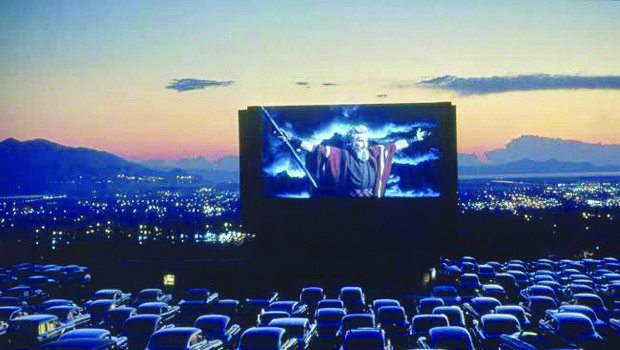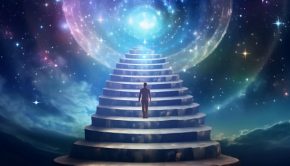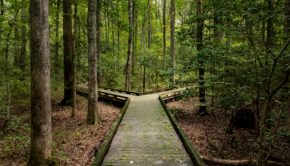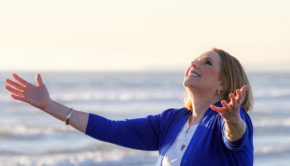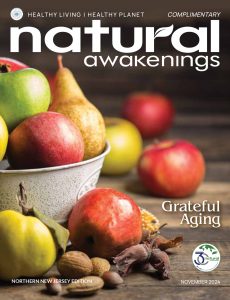Would You Like to Live in the Magical World of the Movies?
In the recent movie, Inception, Leonard DiCaprio travels through layers of different realities called dreams within dreams. Every layer is equally convincing as it occurs, yet most of them are not real. DiCaprio’s character uses a little metal top as his ultimate guide to which of these equally convincing realities is actually real and which is virtual.
Last decade’s enduring movie, The Matrix, suggested that all of us are living in our own fantasized versions of reality—and that many of us would prefer to stay that way. The Harry Potter books and movies suggest that magic and a place where magic is actually real must exist. A parallel reality of magic and wizards, where buses can fly and bodies be healed instantly, exists right under the noses of “real” ordinary people known as Muggles.
The phenomenal success of the Harry Potter books and movies—making their author J.K. Rowling the second-richest woman in Britain after the queen—suggests they resonate at a deep level with many of us. Do we really know that at some long-forgotten level, magic and the reality where magic exists are really possible?
What is pop culture trying to tell us? Is everything around us that we are convinced is real actually as ephemeral as the world of Shakespeare’s Macbeth, where, “Nothing is but what is not”?
This is exactly what the pioneer of consciousness, Gary Douglas, has been saying for 10 years. According to Douglas and Dr. Dain Heer, his business partner in Access Consciousness, everything we think is solid and real is just one version of reality, called contextual reality. According to them, most of us have been spending our entire lives trying to fit into this reality and make it work for us.
The hallmarks of functioning from contextual reality are four questions: “How do I fit? How do I benefit? How can I win? And How can I avoid losing?” If you find yourself asking yourself these questions, or attempting to find a way you fit, you benefit, you win, or you avoid losing, then you are functioning from this contextual reality.
Another way of putting “How do I benefit?” is “What’s in it for me?”—a point of view held by most people. This human motivation is so widespread that most sales trainings teach salespersons to base their sales pitches and livelihoods around it.
This lifelong effort most of us have made to fit into this contextual reality is doomed to fail, say Douglas and Heer. “What part of this reality is working?” they ask,. The problems of increasing education expenditures and falling achievement, as detailed in Time magazine, wars in the Mideast, gigantic budget deficits, all set against ecological disaster that impends from every direction, would appear to validate their point of view.
Indeed, the participants in their seminars presented worldwide can corroborate their point of view of the limitations of trying to make this reality work for them. The typical experience of their seminar attendees is one of getting some aspects of their lives to work, while others remain veritable disaster zones.
Sometimes the personal disasters occur in one realm, such as money or relationships, while other times the disasters careen from one area to another. The experience most of them have in common is the continuing frustration of never being able to get all aspects of their lives to work at once.
There is a reason for this, say Douglas and Heer. This reality—the one we have all agreed to buy as real—is not designed to work, and this is especially true for the creative types. The more questions you ask, the more you follow your own knowing instead of what everyone else would like you to believe, the less well this reality works for you.
The wisdom of Albert Einstein, who observed that we can’t solve problems by using the same kind of thinking we used when we created them, could suggest that Heer and Douglas are onto something in suggesting operating from a different reality.
Fortunately for those of us with a history of disasters, there is another way, which Douglas and Heer call the non-contextual reality. This non-contextual reality exists outside the laws of cause and effect we have bought as real in this contextual reality. Functioning from the non-contextual reality requires a completely different set of questions than functioning from contextual reality.
To move out of contextual reality into non-contextual reality, the questions that are helpful to ask are, “What question can I ask? What contribution can I be or receive? What possibilities are there? What choice can I make?”
One of the things that locks us into this reality is our thoughts, feelings, and emotions. Functioning from non-contextual reality requires moving beyond functioning from thoughts, feelings, and emotions into functioning from knowing, perceiving, and being. Douglas and Heer present tools to make this possible.
Whenever you find yourself thinking, recognize you are choosing a finite contextual approach and make another choice. The way to get to that is to ask a question. When you find yourself feeling, you can ask a question about what else is possible. When you find yourself swimming in emotions, you can ask, “What choices do I have?”
To function from this broader non-contextual reality is not to refuse to function in the “real world.” On the contrary, to refuse to do so would be to function from the same polarity and judgment that Douglas and Heer point out have created exactly the limitations from which we are attempting to extract ourselves. They recommend functioning from allowance, a way of looking at everything in the world as “just an interesting point of view.” This allowance induces a state of oneness, they observe, which perceives and receives everything, while judging nothing. Such oneness would have to include complete allowance of this entire limited reality, they point out.
Indeed, when functioning from this state of oneness, what would appear to become miracles can occur with regularity. Says Heer, “Magic is when what you would like to have in your life actually shows up and you are willing to have it.” While it may appear paradoxical, stepping outside the bounds of contextual reality into non-contextual reality may actually be the only way to get any kind of function in this contextual reality, as well.
Heer and Douglas are co-authors of the book, Magic: You ARE It. BE It, available from Amazon.com as well as from their website. Heer is currently leading a teleclass on creating such magic in life, which is also available through the website.
Access to the other non-contextual reality can have eminently practical consequences in this “real world”. When the oil spill in the Gulf of Mexico occurred, Douglas asked the Earth if it would be possible to change it. The answer, repeatedly, was no. Then, suddenly, the answer was yes. This change occurred on the very day when the temporary cap was successfully installed on the spilling hole.
Several days later, Douglas asked everyone familiar with his work worldwide to coordinate an energetic effort to change the ecological damage occurring in the Gulf. Soon after that, news reports that the volumes of spilled oil had simply vanished started to appear.
Coincidence? That is a word to which Douglas and Heer give no credence. Coincidence and synchronicity, they say, are words we use to deny the potency of our own creations. When we acknowledge that what we have ascribed to as coincidence and synchronicity are actually what we as tremendously potent beings have created, and we invite the universe to show us what else we can generate.
After seeing what can happen as a result of coordinating efforts of those who are willing to be magic, through the changes in the Gulf, Douglas and Heer are onto even bigger projects. They recently asked those interested to join an effort to end what they call “the jihad of stupidity” which has kept change to the warring in the Middle East a heretofore unattainable dream. Who knows? What might be possible if we used magic also?
The book Magic, as well as recordings of other classes by Douglas and Heer are available from their website,
Access-Consciousness.com. Introductory classes on the methods discussed here are offered worldwide by licensed facilitators of Access Consciousness.


